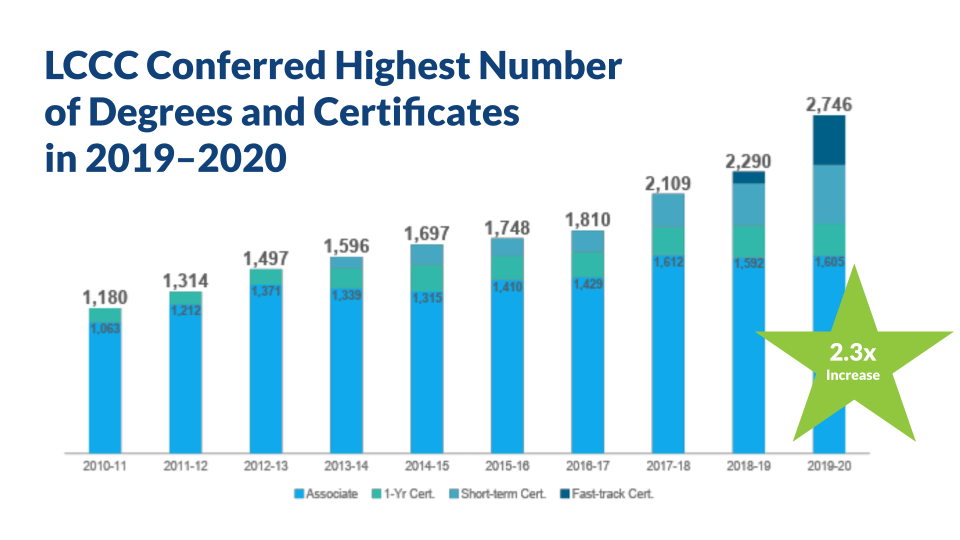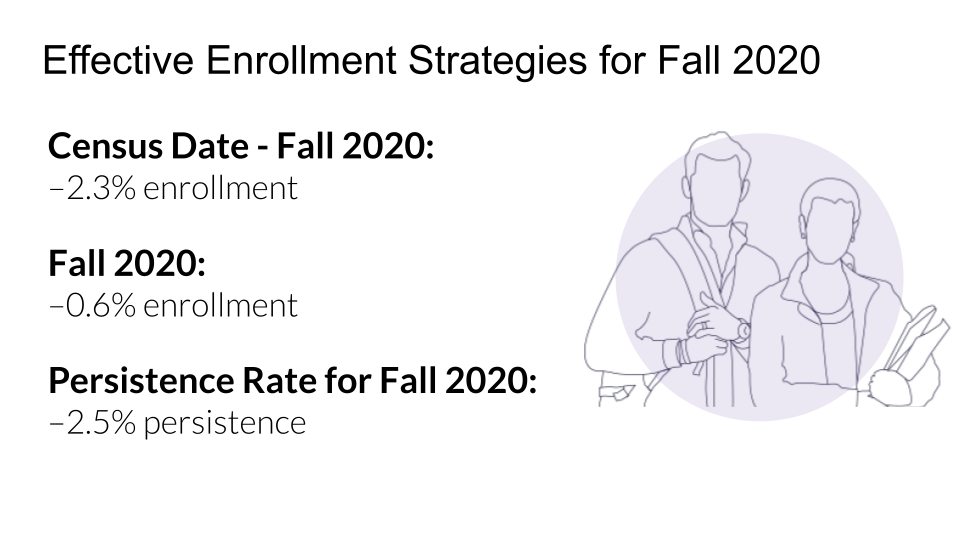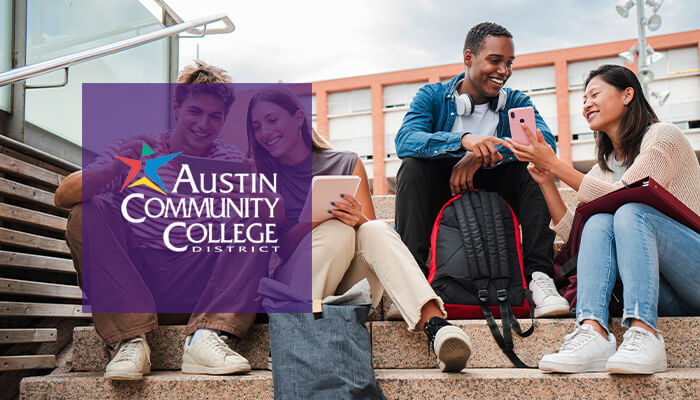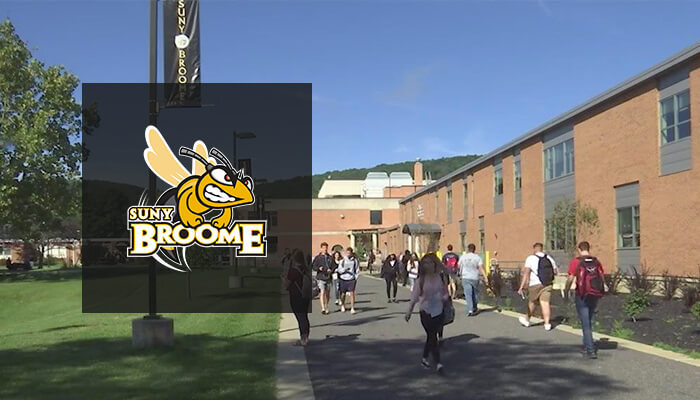
Data-Activated Culture Helps Lorain County Community College Avoid Historic Enrollment Declines
Share this Post
Lorain County Community College’s data culture and use of actionable analytics provided them with the framework needed to respond to student needs during their abrupt pandemic-driven shift to online learning. The result?
While most public 2-year colleges suffered a historic 10% enrollment decline in Fall 2020, LCCC’s enrollment dropped less than 1% thanks to their data-activated student success strategy powered by the Civitas Learning Student Impact Platform.
A public community college located in Elyria, Ohio, LCCC serves 11,000 students from socioeconomically diverse rural, urban, and suburban communities. LCCC’s mission is to improve social mobility for local people by providing the education and training necessary to reach their professional goals. Because of the diversity of their student population and their community-centric mission, LCCC recognized the need to innovate and build a data infrastructure to closely monitor both student and community needs.
Delivering Proactive Student Success at Scale
Their practice of consistently collecting real-time student data to implement a multifaceted, data-activated student success strategy has skyrocketed student completion over the last ten years. LCCC uses the Civitas Learning Student Impact Platform to translate their student data into actionable insights and create a clear view of each student’s journey to completion.
With these insights and heightened visibility, LCCC is able to sustain a culture that centers student success efforts around actionable analytics. LCCC’s ability to know their students and closely monitor real-time changes in their likelihood to persist empowered their student success teams to quickly and effectively respond to their students’ fast-evolving needs.

With investment in student success technology, LCCC made meaningful data available to students, educators, and leaders across campus to improve the student experience, refine academic pathways, and scale proactive student engagement. Leaders point to three key ingredients to their success:
- Delivering personalized and precise interventions by knowing their students
- Understanding which programs on their campus work best for specific students
- Using measurable, data-informed strategies to develop partnerships
Enabling Personalized and Precise Intervention with Real-Time Visibility
LCCC leadership and student success teams closely monitor student challenges using a combination of institution-specific predictive, descriptive and diagnostic analytics within the Civitas Learning Student Impact Platform and a variety of formal and informal student surveys. Access to real-time insights about their particular students enabled them to uncover barriers and risks faster and precisely understand the root cause of student challenges throughout the pandemic.
LCCC found their use of Civitas Learning’s advising analytics and case management capabilities essential for their advising team to quickly provide proactive support to students during the pandemic at scale. With actionable insights instead of disjointed data points, advisors could prioritize their student engagement efforts to those students in their caseloads who were least likely to persist and whose persistence likelihood changed over time, despite caseloads ranging from 252 to 325 students.
Advisors were so in tune with their students’ needs they often found that differences in student predictions made them aware of student issues before faculty submitted early alerts.
With intelligent case management tools, advisors were able to filter their caseloads daily to see immediate changes in predicted persistence and tailor communications to meet the needs of different students. Advisors were so in tune with their students’ needs they often found that differences in student predictions made them aware of student issues before faculty submitted early alerts. The LCCC advising team’s ability to prioritize and tailor engagement was critical during the pandemic when students needed a lot of individualized support from somebody who knew them, understood their particular circumstances, and knew best how to guide them through this uncertain time.
Understanding Which Programs Have the Highest Positive Impact
Clarity about the needs of their students allowed the LCCC team to pinpoint the challenges moving to a virtual environment would pose right away. They anticipated that access to the internet and computers, navigating online courses, and using the learning management system would likely be difficult for many students. Insight into student needs through surveys and real-time analytics allowed them to quickly mobilize to prepare students to return to classes in a virtual environment.
LCCC’s ability to measure the impact of their student success initiatives within the Civitas Learning Student Impact Platform revealed that Emergency Aid Funding resulted in a three percentage point lift on persistence even before the pandemic. Using the platform’s Initiative Analysis capability, they identified that emergency funding had the most significant impact on part-time, late-career, low-income students, women, and those with the lowest likelihood of persistence. Equipped with this information, LCCC leadership built a robust emergency fund and deployed it to provide holistic support to their students well before federal relief funds were available.
Using Measurable, Data-Informed Strategies to Develop Community Funding and Provide Holistic Support
Before the pandemic, the LCCC team embedded data and analytics into their campus culture to proactively respond to student needs. As a completion-focused institution, they worked hard to align the technology, data infrastructure, institutional processes, and professional staff to iterate and innovate quickly to help more students succeed. This hard work paid off.
When the LCCC community quickly shifted its 11,000 students to an online learning environment, leadership could promptly mobilize emergency response efforts across the entire college. Leaders reassigned on-campus staff such as front desk staff and dining hall staff to call students and connect them to the resources they needed to stay enrolled. With Civitas Learning’s connected Student Impact Platform, faculty were able to collaborate with academic advisors to identify students who were not showing up for classes after the transition to online learning to prioritize outreach and get them back on track. And leaders extended withdrawal deadlines to allow students to adjust to a virtual learning environment.
Additionally, LCCC’s ability to demonstrate the effectiveness of its emergency funding with measurable outcomes paved the way for the development of an Advocacy Resource Center. The efficacy data also made it possible for LCCC to raise enough funding from local community partners to provide unrestricted dollars to help students. According to LCCC leadership, the ability to create this safety net for students turned out to be a huge blessing, as the institution needed to quickly respond to students during the early stages of the pandemic before federal funding was available to assist students. In addition to emergency funding, their existing community partnerships allowed them to connect students to job and family services and provide food assistance with a recent SNAP Outreach Grant.
The Results: Less Than 1% Enrollment Decline in Fall 2020
LCCC’s proactive, holistic approach enabled them to address a wide range of needs and provide comprehensive support to their students to ensure they had what they needed to remain enrolled in college precisely when they needed it. These data-activated enrollment strategies lead to:
- Fewer withdrawals in Spring 2020 than previous pre-pandemic terms
- Only a 0.6% enrollment decline in Fall 2020 compared to historic 10% decline at most public 2-year colleges
- Typical persistence rates during Fall 2020 term

Access to real-time data and institution-specific analytics enabled the LCCC student success team to know their students, understand what works for student success, and develop strong partnerships on and off campus. Having these elements in place enables LCCC to quickly and proactively provide holistic student success services when students need them most.


